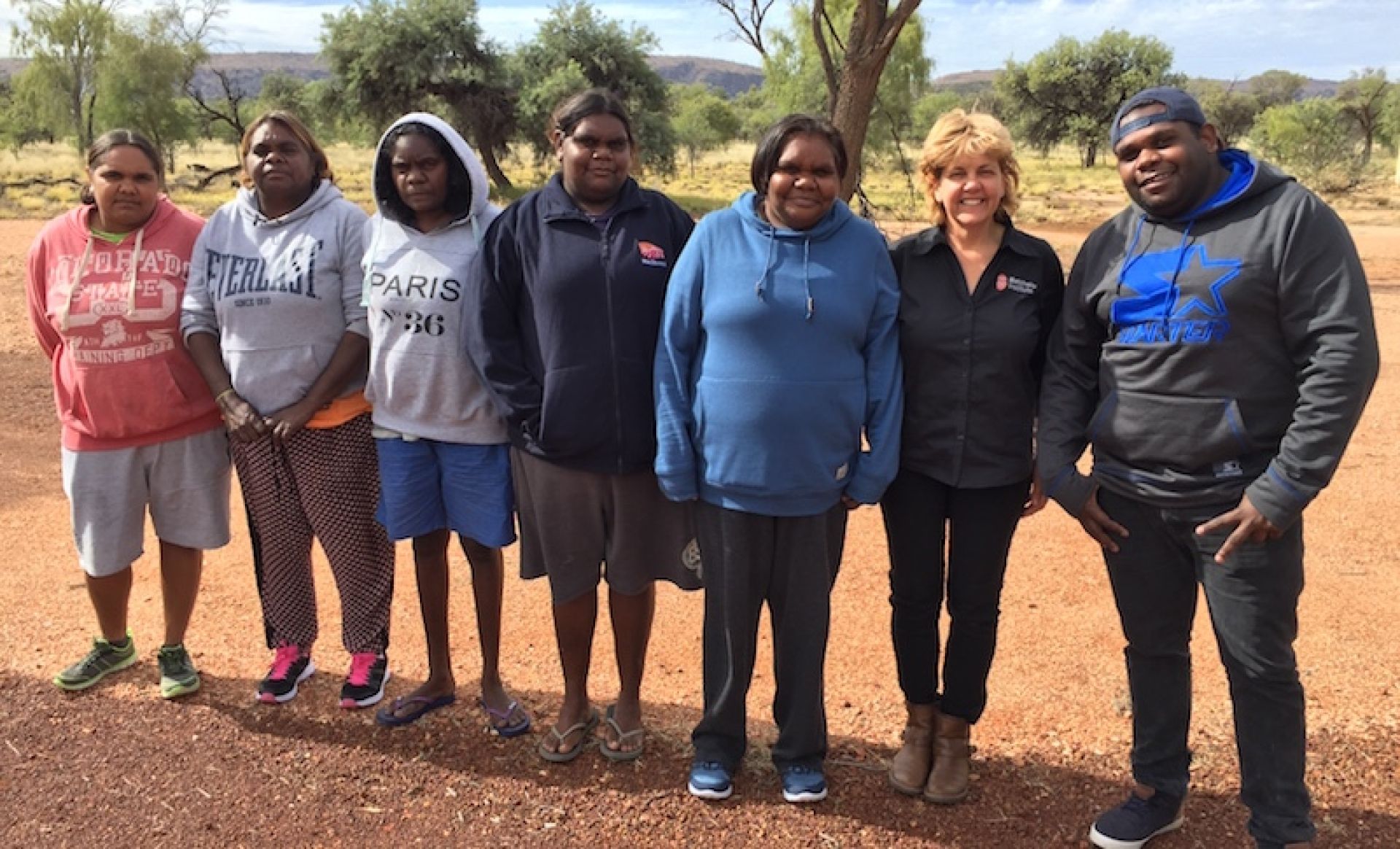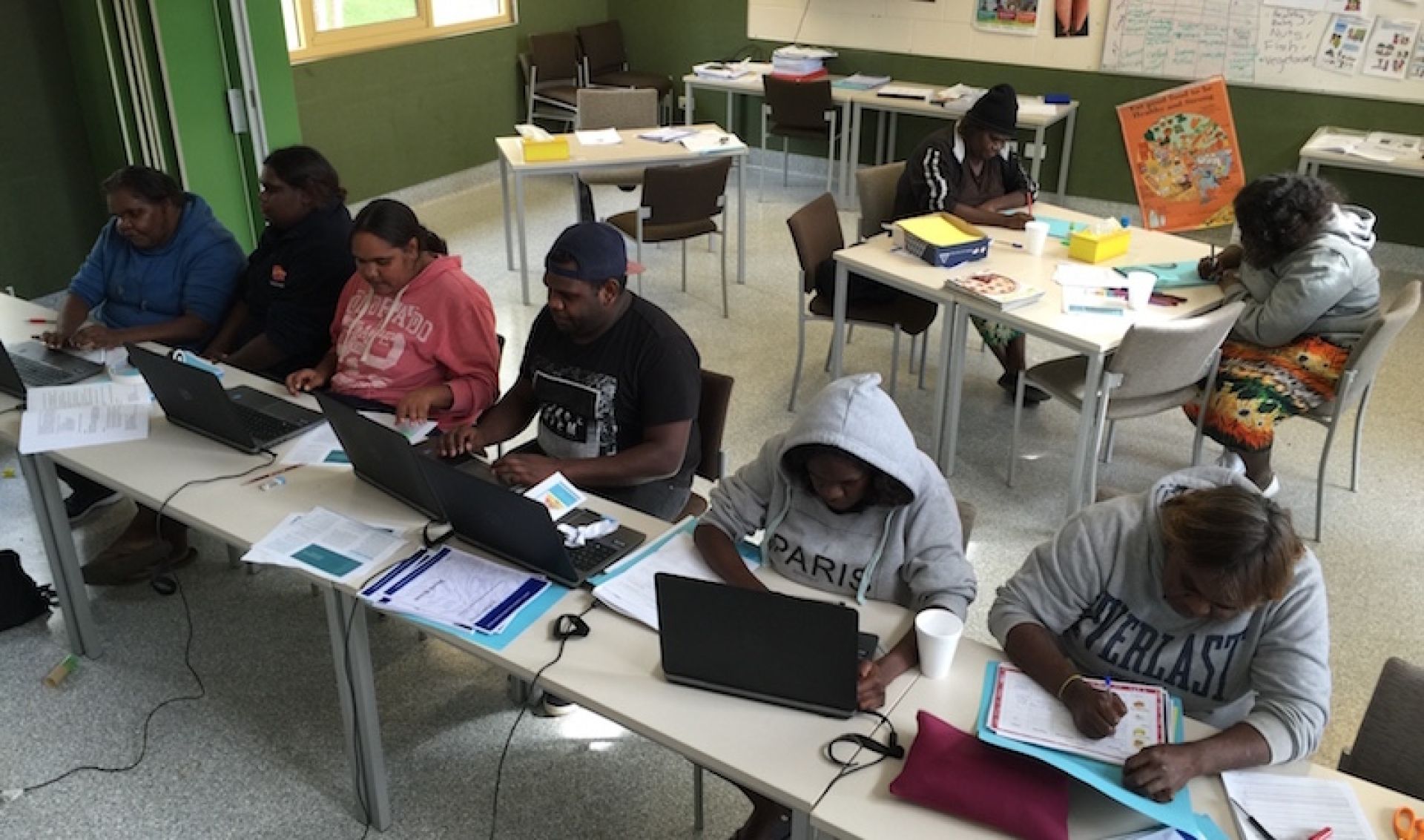

An increasing number of Indigenous students are learning the necessary skills to work in childcare within their communities at the Batchelor Institute’s Desert Peoples Centre campus in Alice Springs.
Students undertaking a Certificate III and Diploma in Early Childhood Education and Care are meeting the growing demand for Indigenous childcare workers.
Christine Schultz, Batchelor Institute’s Early Childhood Lecturer at the Alice Springs Desert Peoples Centre, praised the course’s capacity to bring together students from a range of locations.
“It is a great opportunity for students from remote communities across Central Australia to come together to share ideas and network with others in the same industry,” said Schultz.
The courses help students develop positive and respectful relationships with children, assists them in supporting children’s play and learning and promoting healthy food and drink choices. There is also a focus on cultural competence and contributing to children’s understand and acceptance of all cultures.
Current student in Certificate III in Early Childhood Education and Care Glen Smith, from the Santa Teresa community in the MacDonnell Shire, praised the course for it’s cultural appropriateness,
“I decided to study at Batchelor Institute because it is suitable for me as an Aboriginal. I get to make new friends with my own people and the lecturers are very helpful with any questions.”
“I think it is a very good program that teaches you how to teach children with respect, which I think helps them with their learning and development needs,” said Smith.
Smith also stressed the importance of increasing the number of Aboriginal childcare workers,
“We need more Aboriginal male staff to work in the childcare sector in the Northern Territory. Because there is an increasing demand for it as there are an increasing number of Aboriginal children in childcare”.

Elaine Churchill from Titjikala has been working within childcare in her community for the past two years with children aged 11-13 years. She decided to study this program so she could to take care of young children.
“I’m learning skills to be able to work with children such as food and nutrition and mandatory reporting”
“I would like to encourage my people within Titjikala to do this course at Batchelor Insitute. It is a great place for learning as it is a culturally appropriate place,” said Churchill.
Graduate job roles can vary from supporting the implementation of an approved learning framework, as well as the wellbeing, learning and development of children, implementing and managing programs, designing curriculum and running the day-to-day functions of an education and care service.
“Past students have said that participating in this course has built their confidence and capabilities back in the workplace,” said Schultz.
